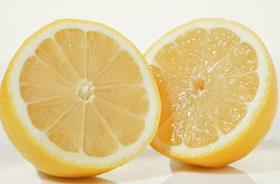
A research paper commissioned by the US Department of Agriculture (USDA) has presented a strong case for the re-opening of the US market to Argentinean lemons.
The study, which was carried out by Virginia Tech University, concluded that the benefit of lower prices and increased consumption would outweigh the loss of sales for local producers.
The report has been welcomed by the Argentinean lemon industry, with Roberto Sánchez Loria, president of the Tucumán Citrus Association (ATC), describing the findings as “an important step”.
Titled ‘The Economic Impact of Potential US Regulatory Decisions Concerning Imports of Argentine Lemons’, the paper analyses the potential economic effects of the entry of Argentinean lemons under three scenarios:
1. Year-round access in non citrus-producing states, assuming the lemon import shares of Chile and Argentina are similar.
2. Year-around access in non citrus-producing states, assuming the lemon import shares of Mexico, Chile, Spain and others are reduced proportionately in order to accommodate entry of Argentinean lemons.
3. Entry restricted to only the US lemon production off-season and non citrus-producing states, assuming again that lemon import shares of Mexico, Chile, Spain and others are reduced proportionately.
In all three scenarios, the study concluded that the entry of Argentinean lemons would decrease the price of lemons in the US and increase lemon consumption.
“This increases consumer welfare `…` thus, there is net benefit to the US overall,” the report said.
Where Argentine lemons are allowed entry in non US citrus-producing states on a year-round basis, the report said consumers in that region will benefit from lower prices, while consumers in citrus-producing states will also benefit through indirect effects.
However, the effects will depend on how easily lemon suppliers are able to shift supply between seasons, according to the study.
“If the elasticity of transformation between seasons is low, the displacement effects of Argentine lemons on the aggregate supply will dominate compared to substitution effects.
“In this case, lemon prices increase and demand falls in both regions in the season when Argentine lemons are prohibited.
“If the elasticity is high, and suppliers can more easily switch supplies between seasons, the opposite effects are generated in the lemon production season.”
The study also highlighted the concerns of the US market has over fruit flies and more recently CVC disease (Citrus Variegated Chlorosis) in Argentina.
However, the authors pointed out that there are ongoing negotiations between Argentina and the US to develop a systems approach with several non-tariff measures that can minimise pest risks and allow imports of Argentinean lemons under specified conditions.



